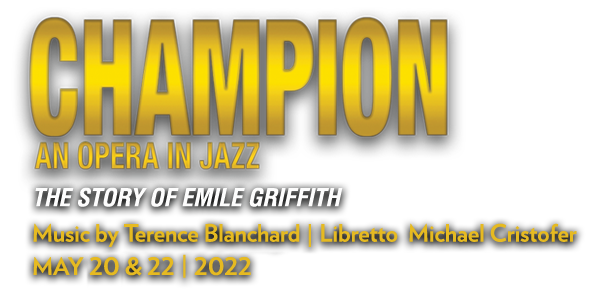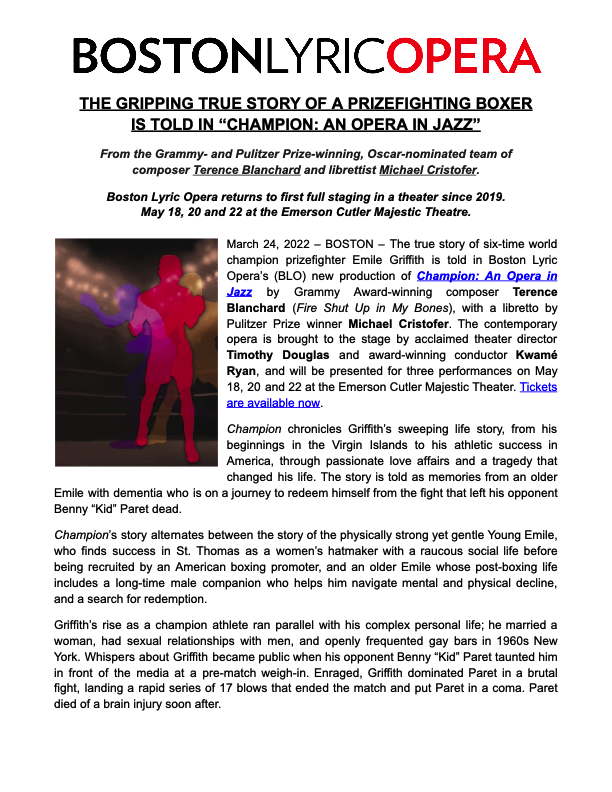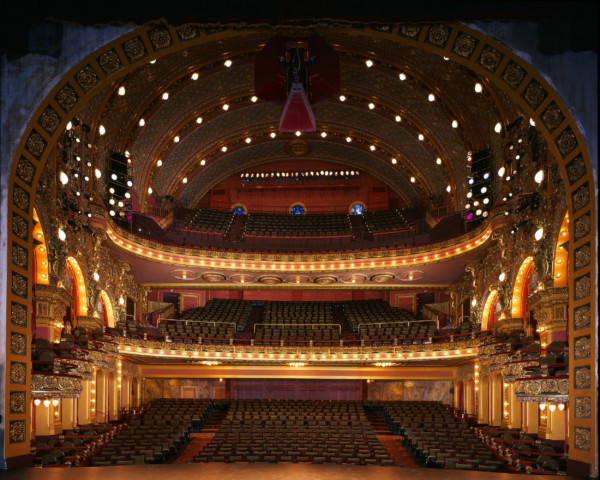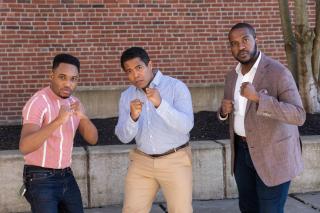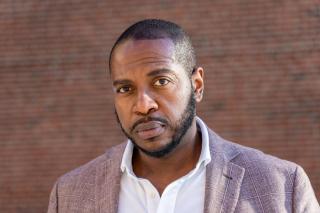Champion:
An Opera in Jazz
MAY 20 & 22 | 2022
Emerson Cutler Majestic Theatre
Music by Terence Blanchard
Libretto by Michael Cristofer
Haunted by the memories of his prize-winning boxing past, welterweight champion Emile Griffith reflects on his life as he navigates the meaning of masculinity and complex sexuality. Multi-talented composer Terence Blanchard seamlessly fuses opera and jazz styles to create this unique work based on a true story that’s not to be missed.
Champion: An Opera in Jazz contains adult themes including explicit language, non-consensual sexual situations, and physical violence.
Press Release
Champion was commissioned by Opera Theatre of Saint Louis and co-commissioned by Jazz St. Louis. The commissioning of Champion was made possible with a leadership gift from the Whitaker Foundation, and with generous support from the Fred M. Saigh Endowment at Opera Theatre and the National Endowment for the Arts. Funded in part by The Aaron Copland Fund for Music, Inc.
Community engagement programming for Champion was supported in part by the Virginia Wellington Cabot Foundation.
This program is supported in part by a grant from the Boston Cultural Council, Reopen Creative Boston Fund, administered by the Mayor’s Office of Arts and Culture.
In his apartment on Long Island in the present day, Emile Griffith struggles to dress himself, confused. Luis, his adopted son, partner, and caretaker, helps him get ready for an important meeting, as Emile’s memories intensify…
In the 1950s on the island of St. Thomas, Emile is a young man who dreams of reuniting with his mother, Emelda, and becoming a hat maker, singer, and baseball player. He moves to New York City and finds her, and though she doesn’t recognize him, she is overjoyed to reunite with one of the children she left behind. She brings him to meet Howie Albert, a hat manufacturer, hoping to find Emile work. Howie sizes up Emile and immediately recognizes his potential as a boxer. He offers to train him as a welterweight, and Emile quickly develops his natural talent and physique, as Emelda urges him to give up his other dreams. But Emile is lonely and struggles with his identity. He goes to a queer bar in Times Square and meets Kathy, the owner, who welcomes him into an exciting but scary new community. Emile opens up to Kathy about his childhood and the cruelty he experienced from a fundamentalist relative.
In 1962, Emile is set to fight Benny “Kid” Paret in a high-profile match. When they face off at weigh-in, Paret taunts Emile, calling him “maricon,” a Spanish slur for homosexuals. Emile is furious, and they nearly come to blows right there. Howie pulls him away, but when Emile begins to explain why the insult hit so close to home, Howie refuses to have the conversation, telling him that the boxing world is not a place where he can be open about his sexuality. Alone, Emile wrestles with his sense of manhood and self. The fight begins and quickly becomes heated. Paret continues to mock him, and as the fight escalates, Emile delivers seventeen blows in seven seconds. Paret collapses, falls into a coma, and later dies.
Back in the present day, lost in his memories, Emile thinks that he sees Paret and speaks with him. Luis reorients him and reminds him that today, they will go to meet Paret’s son.
As the 1960s continue, mile amasses more wins, more fame, and more notoriety, but internally, he is haunted by memories of Paret and grapples with his identity. He meets and marries a woman named Sadie, against the advice of Howie and Emelda. In the 1970s, however, his luck changes. He is on a losing streak and starting to show signs of “boxer’s brain” due to chronic traumatic brain injury. Emile rejects the support of his family and Howie, returning to a queer space he frequents, outside of which he is brutally beaten by a group of bigots.
In the present, overcome with memories of the attack, Emile becomes agitated and confused; Luis calms him, reminding him all of that is in the past. They go to meet Kid Paret’s son, Benny Paret, Jr., and Luis tells Benny about Emile’s condition. Emile expresses regret and asks Benny for his forgiveness, as voices from Emile’s past intensify and crescendo in his mind.
Luis takes Emile back home. Alone once more, Emile’s memories recede and hush.
When Opera Meets Jazz: A Brief History
One day, a New York Times article made the striking announcement that there was a “Jazz Opera in View for the Metropolitan.” The company expressed interest in producing an opera of the “modern American type.” Branching out beyond the European canonical repertory, the article explained, was a necessary innovation which would “bear important fruit in the near future.” If these sentiments – a desire to expand the repertory, a commitment to foregrounding new work – sound familiar, then it may come as a surprise to learn that this article was published nearly a century ago: on November 18, 1924. What’s [...]

Brian Major
Emile Griffith
Brian Major | Emile Griffith
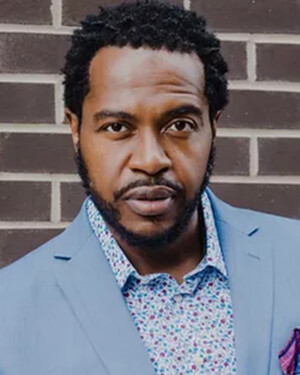
Baritone Brian Major has been praised by critics for his “velvety voice” and “commanding stage presence.” During the 2021-22 season, Mr. Major makes his debut as Scarpia in Tosca with Opera Columbus, sings the role of Taylor in the world premiere of Undying Love at Hearing in Color, will join Sarasota Opera as Ezio in Attila, and joins Boston Lyric Opera as Emile Griffith in Champion: An Opera in Jazz (Blanchard / Cristofer). He will also return to Opera Carolina as Amonasro in Aida and perform as Schaunard in La bohème with Florentine Opera and the Columbus Symphony. During the 2020-2021 season, he was engaged to make his Chautauqua Orchestra debut singing in Moravec/Campbell’s Sanctuary Road and performing selections from Porgy & Bess, his Opera on the James debut as Scarpia in Tosca, and a debut with Maryland Lyric Opera as Ford in Falstaff (COVID-19). In the spring of 2021, Mr. Major returned to Opera Grand Rapids as Gary in Douglas Pew’s Penny and performed a series of concerts with Lyric Fest, Opera Delaware and the Princeton Festival. Mr. Major holds degrees from Morehouse College and Boston University along with a performance certificate from the prestigious Boston University Opera Institute.

Markel Reed
Young Emile Griffith
Markel Reed | Young Emile Griffith
 Baritone Markel Reed “brings great articulate power and style” (Broadway World) to concert, recital and opera performances throughout the U.S., Canada and Europe. A passionate conveyor of the operatic repertoire, Reed has been cited for “delight[ing] the crowd with his musical and dramatic expression” (Upstage Post) in both standard and contemporary works. Reed’s 2021-22 season opened with the premiere of Damien Sneed and Karen Chilton’s The Tongue & The Lash at Opera Theatre of St. Louis, where he portrayed “a credible James Baldwin and sang through his argument with power and finesse” (St. Louis Post-Dispatch). At the Metropolitan Opera, Reed performs with the ensemble in productions of Terence Blanchard’s Fire Shut Up in My Bones, also covering Foreman/Adult James and in Porgy and Bess, also covering the role of Lawyer Frazier. No stranger to these productions, Reed sang with the Metropolitan Opera’s chorus in their GRAMMY Award-winning Porgy and Bess in 2019. That same year, he created the role of Chester in Fire Shut Up in My Bones in its premiere at Opera Theatre of St. Louis.
Baritone Markel Reed “brings great articulate power and style” (Broadway World) to concert, recital and opera performances throughout the U.S., Canada and Europe. A passionate conveyor of the operatic repertoire, Reed has been cited for “delight[ing] the crowd with his musical and dramatic expression” (Upstage Post) in both standard and contemporary works. Reed’s 2021-22 season opened with the premiere of Damien Sneed and Karen Chilton’s The Tongue & The Lash at Opera Theatre of St. Louis, where he portrayed “a credible James Baldwin and sang through his argument with power and finesse” (St. Louis Post-Dispatch). At the Metropolitan Opera, Reed performs with the ensemble in productions of Terence Blanchard’s Fire Shut Up in My Bones, also covering Foreman/Adult James and in Porgy and Bess, also covering the role of Lawyer Frazier. No stranger to these productions, Reed sang with the Metropolitan Opera’s chorus in their GRAMMY Award-winning Porgy and Bess in 2019. That same year, he created the role of Chester in Fire Shut Up in My Bones in its premiere at Opera Theatre of St. Louis.
Tichina Vaughn
Emelda Griffith
Tichina Vaughn | Emelda Griffith
 Grammy Award winning American mezzo soprano Tichina Vaughn has established an important presence among the world’s leading opera houses, concert halls and theaters. As an outstanding singing-actress versatile in opera, operetta, musical theater, and jazz, Vaughn continues to gather both popular and critical acclaim. Ms. Vaughn began her operatic career as a member of the Metropolitan Opera’s Lindemann Young Artist Program.
Grammy Award winning American mezzo soprano Tichina Vaughn has established an important presence among the world’s leading opera houses, concert halls and theaters. As an outstanding singing-actress versatile in opera, operetta, musical theater, and jazz, Vaughn continues to gather both popular and critical acclaim. Ms. Vaughn began her operatic career as a member of the Metropolitan Opera’s Lindemann Young Artist Program.
For the 2021-2022 season, Ms. Vaughn returns to the Metropolitan Opera as The Hostess of the Inn in Boris Godunov, Maria in Porgy & Bess and Serving Woman 1 in Elektra. She also debuts with Boston Lyric Opera in Terence Blanchard’s Champion as Emelda, and in the summer of 2022 she joins the Cincinnati Opera, returning to the role of Amneris in Aida.
Career highlights include performances at the Metropolitan Opera, Dutch National Opera, San Francisco Opera, English National Opera, Teatro all Scala Milan, Staatsoper Hannover and Semperoper Dresden, with roles ranging from Mother Jeanne in Dialogues des Carmélites, Maria in Porgy and Bess, Begonia in Der Junge Lord, Klytemnestra in Elektra, The Queen in Schwanda the Bagpiper, and Azucena in Il Trovatore.
Ms. Vaughn has received many awards and honors during her distinguished career including the Metropolitan Opera National Council Award, the Richard Tucker Foundation Study Grant Award, the Opera Index Vocal Competition Award, Licia Albanese Puccini Foundation Award, and a Birgit Nilsson Foundation Award.

Chabrelle D. Williams
Cousin Blanche/Sadie Donastrog Griffith
Chabrelle D. Williams | Cousin Blanche/Sadie Donastrog Griffith

Soprano Chabrelle Williams is a dynamic presence on the stage and an accomplished educator. She is a native of Philadelphia and has a wide musical range including opera, gospel and musical theater. In addition to opera, Chabrelle also enjoys the more intimate experience of performing oratorio and art song. Some highlights in her performing career include: the soprano solo in Verdi’s Requiem with Citymusic Cleveland, Sadie Donastrag Griffith/Cousin Blanche in Champion by Terence Blanchard, Donna Anna in Don Giovanni by Mozart, the title role in Puccini’s Suor Angelica and Elle in La voix humaine.
Most recently, Chabrelle performed the role of La Contessa in Opera in the Heights Lucia and Figaro Highlights concert. In the late Fall, Chabrelle looks forward to world premiering the role of Esther in Ricky Ian Gordon and Lynn Nottage’s new opera Intimate Apparel in the January to March 2022!

Jesus Garcia
Luis Rodrigo Griffith
Jesus Garcia | Luis Rodrigo Griffith
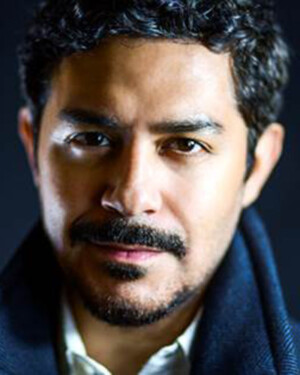
Acclaimed tenor Jesus Garcia specializes in romantic roles of the French and Italian repertoires. His best known performances include a debut in the title role of Charles Gounod’s Faust at the Savonlinna Opera Festival, La Bohème with Tampere Talo in Finland, and as “Count Almaviva” in Rosetta Cucchi’s Boston Lyric Opera production of Il Barbiere di Siviglia. Garcia has performed in W.A. Mozart’s Requiem throughout Italy with Filharmonia Arturo Toscanini, conducted by Rinaldo Alessandrini. His recordings include the world premiere of Jorge Martin’s Before Night Falls, the Original Broadway Cast recording of Baz Luhrmann’s La Bohème, and Laurent Pelly’s production of La Vie Parisienne. As part of the principal ensemble of Luhrmann’s Bohème, in which he played “Rodolfo,” Garcia received a 2003 Tony Honor for Excellence in the Theater. He has been seen on NBC’s “The TODAY Show,” A&E’s “Breakfast with the Arts,” and the Tony Awards broadcast, has been featured in The New York Times, Vogue, Vanity Fair, New York and Opera News.

Terrence Chin-Loy
Benny “The Kid” Paret / Benny Paret, Jr.
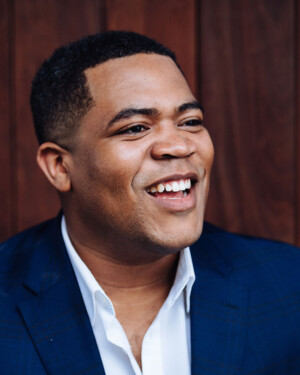
American tenor Terrence Chin-Loy, whom Opera News described as having a “beautiful lyric tenor voice” pairs passionate performance with a full, sweet sound. Terrence opens the 2021-2022 season in his solo debut at the Metropolitan Opera in Terence Blanchard’s Fire Shut Up In My Bones. Thereafter, he returns to Arizona Opera for his second season as a Marion Roose Pullin Resident Artist where he will sing Henrik Egerman in A Little Night Music and Ferrando in Così fan tutte.
In the 2020-2021 season, Terrence sang a series of concerts with Arizona Opera as a member of the Studio, and joined the Norfolk Chamber Music Festival in a piece by Daniel Bernard Roumain about the shooting of Philando Castile. He also appeared in William Grant Still’s Highway 1 as a Gerdine Young Artist at Opera Theatre St. Louis. In the 2019-2020 season, Terrence joined the roster of the Metropolitan Opera as Mingo (Cover) in Porgy and Bess and the New York Festival of Song as a part of the Vocal Rising Stars series at Caramoor.
Terrence is a graduate of Indiana University, where he received a Performer Diploma. He also holds degrees from Mannes College and Yale University. Terrence holds a BA in Music from Yale University, where his studies concentrated on Music Theory and Musicology. He is a 2018 Metropolitan Opera National Council Auditions National Semifinalist.

Wayne Tigges
Howie Albert
Wayne Tigges | Howie Albert
 Originally from Dubuque, Iowa, Wayne Tigges joins Tulsa Opera for Jochanaan in Salome, and returns to the role of Howie Albert in Champion in his Boston Lyric Opera debut in the 2021/22 season. His recent engagements include: Mr. Flint in Billy Budd (San Francisco Opera); Owen Hart in Dead Man Walking (Lyric Opera of Chicago, Washington National Opera, Atlanta Opera); Judge Turpin in Sweeney Todd (San Francisco Opera, Des Moines Metro Opera); Basilio in Il barbiere di Siviglia (LA Opera, Michigan Opera Theatre, Opera Philadelphia, Lyric Opera of Chicago); Frank in Die Fledermaus (Palm Beach Opera); John Proctor in The Crucible (Opera Santa Barbara); title role of Der fliegende Holländer (Atlanta Opera, Virginia Opera, Austin Opera and Florentine Opera); Alfio in Cavalleria rusticana and Tonio in I Pagliacci (New Orleans Opera); the title role in Gianni Schicchi and Tonio in I Pagliacci (Utah Opera); Sgt. Aaron Marcum in the world premiere of Huang Ruo and David Henry Hwang’s An American Soldier and Mr. McGuire in Tobias Picker’s Emmeline (Opera Theatre of Saint Louis); Méphistophélès in Faust (Macau); Howie Albert in Blanchard’s Champion and Assur in Semiramide (Washington National Opera); Villains in Les contes d’Hoffmann (L.A. Opera, Hawaii Opera Theater); the title role in Falstaff (Des Moines Metro Opera); Nick Shadow in The Rake’s Progress (Teatro Municipal de Santiago); Roy Cohn in Angels in America (New York City Opera); Joe St. George in the world premiere of Picker’s Dolores Claiborne (San Francisco Opera); Achilla in Giulio Cesare (Metropolitan Opera); the Villains in Les contes d’Hoffmann, Basilio in Il barbiere di Siviglia, Hercules in Gluck’s Alceste, Douglas in La donna del lago, and Nourabad in Les pêcheur de perles (Santa Fe Opera); and Donner in Das Rheingold and both Zuniga and Escamillo in Carmen (Los Angeles Opera). Wayne Tigges received a graduate degree and Artist Diploma from the University of Cincinnati-College Conservatory of Music and his Bachelor of Music from Iowa State University.
Originally from Dubuque, Iowa, Wayne Tigges joins Tulsa Opera for Jochanaan in Salome, and returns to the role of Howie Albert in Champion in his Boston Lyric Opera debut in the 2021/22 season. His recent engagements include: Mr. Flint in Billy Budd (San Francisco Opera); Owen Hart in Dead Man Walking (Lyric Opera of Chicago, Washington National Opera, Atlanta Opera); Judge Turpin in Sweeney Todd (San Francisco Opera, Des Moines Metro Opera); Basilio in Il barbiere di Siviglia (LA Opera, Michigan Opera Theatre, Opera Philadelphia, Lyric Opera of Chicago); Frank in Die Fledermaus (Palm Beach Opera); John Proctor in The Crucible (Opera Santa Barbara); title role of Der fliegende Holländer (Atlanta Opera, Virginia Opera, Austin Opera and Florentine Opera); Alfio in Cavalleria rusticana and Tonio in I Pagliacci (New Orleans Opera); the title role in Gianni Schicchi and Tonio in I Pagliacci (Utah Opera); Sgt. Aaron Marcum in the world premiere of Huang Ruo and David Henry Hwang’s An American Soldier and Mr. McGuire in Tobias Picker’s Emmeline (Opera Theatre of Saint Louis); Méphistophélès in Faust (Macau); Howie Albert in Blanchard’s Champion and Assur in Semiramide (Washington National Opera); Villains in Les contes d’Hoffmann (L.A. Opera, Hawaii Opera Theater); the title role in Falstaff (Des Moines Metro Opera); Nick Shadow in The Rake’s Progress (Teatro Municipal de Santiago); Roy Cohn in Angels in America (New York City Opera); Joe St. George in the world premiere of Picker’s Dolores Claiborne (San Francisco Opera); Achilla in Giulio Cesare (Metropolitan Opera); the Villains in Les contes d’Hoffmann, Basilio in Il barbiere di Siviglia, Hercules in Gluck’s Alceste, Douglas in La donna del lago, and Nourabad in Les pêcheur de perles (Santa Fe Opera); and Donner in Das Rheingold and both Zuniga and Escamillo in Carmen (Los Angeles Opera). Wayne Tigges received a graduate degree and Artist Diploma from the University of Cincinnati-College Conservatory of Music and his Bachelor of Music from Iowa State University.

Stephanie Blythe
Kathy Hagen
Stephanie Blythe | Kathy Hagen
 A renowned opera singer, recitalist, and cabaret artist, mezzo-soprano Stephanie Blythe is one of the most highly respected and critically acclaimed artists of her generation. Her repertoire ranges from Handel to Wagner, French art song to contemporary and classic American song. She has performed on many of the world’s greatest stages, such as Carnegie Hall, the Metropolitan Opera, Covent Garden, Paris National Opera and the San Francisco, Chicago Lyric and Seattle opera house. She starred in the Metropolitan Opera’s live HD broadcasts of Orfeo ed Euridice, Il Trittico, Rodelinda, Cendrillon, and the complete Ring Cycle and also appeared in PBS’s Live From Lincoln Center broadcasts of the New York Philharmonic’s performance of Carousel and her acclaimed show, We’ll Meet Again: The Songs of Kate Smith. Her recordings include her solo album, as long as there are songs (Innova), and works by Mahler, Brahms, Wagner, Handel and Bach (Virgin Classics). Ms. Blythe was named Musical America’s Vocalist of the Year in 2009, received an Opera News Award in 2007 and won the prestigious Richard Tucker Award in 1999. She is also the Artistic Director of the Fall Island Vocal Arts Seminar at the Crane School of Music, and in 2019 was appointed the Artistic Director of the Bard College Conservatory of Music Graduate Vocal Arts Program.
A renowned opera singer, recitalist, and cabaret artist, mezzo-soprano Stephanie Blythe is one of the most highly respected and critically acclaimed artists of her generation. Her repertoire ranges from Handel to Wagner, French art song to contemporary and classic American song. She has performed on many of the world’s greatest stages, such as Carnegie Hall, the Metropolitan Opera, Covent Garden, Paris National Opera and the San Francisco, Chicago Lyric and Seattle opera house. She starred in the Metropolitan Opera’s live HD broadcasts of Orfeo ed Euridice, Il Trittico, Rodelinda, Cendrillon, and the complete Ring Cycle and also appeared in PBS’s Live From Lincoln Center broadcasts of the New York Philharmonic’s performance of Carousel and her acclaimed show, We’ll Meet Again: The Songs of Kate Smith. Her recordings include her solo album, as long as there are songs (Innova), and works by Mahler, Brahms, Wagner, Handel and Bach (Virgin Classics). Ms. Blythe was named Musical America’s Vocalist of the Year in 2009, received an Opera News Award in 2007 and won the prestigious Richard Tucker Award in 1999. She is also the Artistic Director of the Fall Island Vocal Arts Seminar at the Crane School of Music, and in 2019 was appointed the Artistic Director of the Bard College Conservatory of Music Graduate Vocal Arts Program.

Jonathan Harris
Little Emile Griffith
Jonathan Harris | Little Emile Griffith


Neal Ferreira
Ring Announcer
Neal Ferreira | Ring Announcer
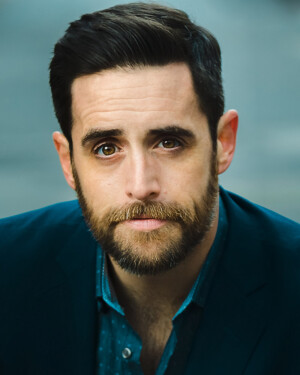
Praised for his “rich, powerful voice” and “bravura-filled stage presence,” Neal Ferreira is a nationally recognized lyric tenor known for his cultivated vocalism and eloquent expression. Dubbed a “Boston mainstay” by the Boston Globe, he recently appeared with the Boston Youth Symphony Orchestra at Symphony Hall as Tamino in The Magic Flute, and with Emmanuel Music as Macheath in Benjamin Britten’s version of The Beggar’s Opera. In the spring of 2022, the tenor will return to the Boston Symphony Orchestra in Wozzeck at Carnegie Hall under the baton of Maestro Andris Nelsons. He will also perform the role of the Ring Announcer in a new production of Terence Blanchard’s Champion with the Boston Lyric Opera.
A much sought after interpreter of new music, Mr. Ferreira made his European debut in the spring of 2021 as Laertes in the world premiere of Joseph Summer’s Hamlet with State Opera Rousse, Bulgaria. Ferreira’s successful performance as the Visitor in Boston Lyric Opera’s production of Philip Glass’ In the Penal Colony was called “poignant” by the Wall Street Journal and “perfect” by Opera News. The tenor has also been featured on the premiere recordings of Charles Wuorinen’s Haroun and the Sea of Stories (BMOP/sound), Joseph Summer’s The Tempest (Albany), Mario Castelnuovo-Tedesco’s The Importance of Being Earnest (Odyssey Opera), and James MacMillan’s Clemency (BIS Records).
Ferreira has also appeared with Florida Grand Opera, the Glimmerglass Festival, Opera Colorado, Virginia Opera, Anchorage Opera, Syracuse Opera, American Repertory Theatre, Boston Modern Orchestra Project, and Guerilla Opera.
Mr. Ferreira is currently an Assistant Professor of Voice at Berklee College of Music and also serves on the voice faculty of his alma mater, Providence College. He holds a Master of Music degree from the New England Conservatory of Music, and he is a proud student of internationally renowned tenor, Frank Lopardo.

Nicholas LaGesse
Man in the Bar/ A Young Man
Nicholas LaGesse | Man in the Bar/ A Young Man
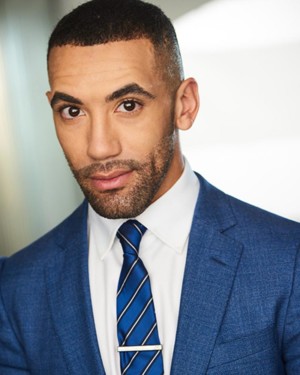
Baritone Nicholas LaGesse is a first year Jane and Steven Akin Emerging Artist at Boston Lyric Opera. Previous career highlights include Guglielmo in Così Fan Tutte with the North Shore Music Festival, covering Morales in Carmen with Martina Arroyo’s Prelude to Performance program, as well as Harlekin in Ariadne auf Naxos, the title role in Don Giovanni, and Danilo in The Merry Widow, all with Pacific Opera Project. A frequent performer of contemporary opera, he works regularly with recent MacArthur Grant recipient Yuval Sharon and his critically acclaimed, experimental opera company, The Industry. He helped create the role of Jameson in The Industry’s multi-location production of Hopscotch, as well as creating the role of Federzoni in composer Andy Akiho’s operatic adaption of Bertolt Brecht’s play Galileo. Nicholas has been honored as a finalist in the Palm Springs Opera Guild Competition, the winner of the Chicago Chapter of the National Association of Teachers of Singing (NATS) Competition, and was a Bella Voce award recipient in the Bel Canto Foundation Competition. www.nicholaslagesse.com

Kwamé Ryan
Conductor
Kwamé Ryan | Conductor
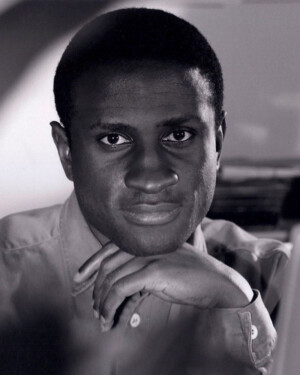
Kwamé Ryan has held the position of General Music Director of Freiburg Opera between 1999 and 2003, and that of Musical and Artistic Director of the National Orchestra of Bordeaux Aquitaine between 2007 and 2013.
As a guest conductor in Germany, he has conducted the Radio Orchestras of Baden-Baden and Freiburg, Stuttgart, and Bavaria, the Deutsche Kammerphilharmonie, Konzerthausorchester Berlin, Staatsoper Saarbrücken and Staatsoper Stuttgart, while in France, he has worked at Opera de la Bastille, Opera de Lyon, Opera de Bordeaux and the Orchestre Philharmonique de Radio France. His work in the USA has taken him to the Symphony Orchestras of Baltimore, Dallas, Detroit, Indianapolis, Atlanta, Houston, New Jersey and the Grant Park Festival, Chicago, and in the U.K., to English National Opera, Scottish Chamber Orchestra, Royal Scottish Symphony and the Philharmonia. He has, for many years, been a regular guest of the Seoul Philharmonic Orchestra and recently returned to La Monnaie – National Opera of Belgium to conduct the World Premiere of “The Time of Our Singing” by Kris DeFoort.
Upcoming engagements include debuts at Dutch National Opera, Theatre St. Gallen, the Stavanger Symphony Orchestra and the Charlotte Symphony Orchestra with a return to the Baltimore Symphony Orchestra.

Timothy Douglas
Stage Director
Timothy Douglas | Stage Director
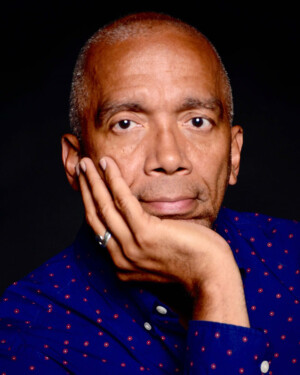
Timothy Douglas is a theatre director, actor, and educator who has staged productions of Assassins (Berkshire Theatre Group), Nina Simone: Four Women (Arena Stage), The Color Purple (Portland Center Stage), and served as assistant stage director on Rodelinda (Virginia Opera).
Representative directing assignments include the world premieres of Jason Reynolds’ Long Way Down (Kennedy Center), August Wilson’s Radio Golf (Yale Rep), Rajiv Joseph’s The Lake Effect (Silk Road Rising/Jeff Award Best New Work), Adriene Kennedy’s Etta & Ella On The Upper West Side (McCarter & Roundhouse Theaters), Cheryl L. West’s Something Happened In Our Town (Children’s Theatre Company), Etiquette Of Vigilance (Steppenwolf), Dontrell Who Kissed The Sea (Theatre Alliance/6 Helen Hayes Award nominations), The Last Orbit Of Billy Mars (Woolly Mammoth), the U.S. premieres of Tristan Bernay’s Frankenstein (Classic Stage Company) and Natasha Gordon’s Nine Night (Roundhouse Theatre), the NYC Bronte: A Portrait Of Charlotte (Off-Broadway), as well as projects for American Conservatory Theater, Berkeley Rep, Cincinnati Playhouse in the Park, Denver Center Theatre Company, Guthrie Theater, Shakespeare Theatre Company, and many others.
International credits include Disgraced (The Great Theatre of China), Rosmersholm (National Theatret Norway), Mules (Downstage New Zealand), The Three Sisters (Toi Whakaari New Zealand), and Eve’s Song (Sundance Theatre Institute Morocco)
Timothy currently serves as Distinguished Artist in Residence at Emerson College and is a recipient of the Lloyd Richards/National Black Theatre Festival Director Award. He has previously served as the associate artistic director for Actors Theatre of Louisville and director-in-residence at Center Theatre Group. MFA, Yale School of Drama / timothydouglas.org

Darius Barnes
Movement Director
Darius Barnes | Movement Director

Darius Barnes is a director, choreographer and performing artist. He is the Associate Choreographerof Kimberly Akimbo at the Atlantic Theater. Darius produced the inaugural Antonyo Awards on YouTube, in collaboration with Broadway Black and the Black Theatre Society. He began choreographing by participating in the New York Choreographic Institute. His works include Mandala (New York City Ballet) and to be in contact (Carolina Ballet). His theater work includes MJ the Musical (Assistant Choreographer), Five Guys Named Moe (Associate Director/Choreographer, Playhouse on Park) and Broadway Bounty Hunter (Associate Choreographer, Barrington Stage). Darius appeared in the Metropolitan Opera and Chicago Lyric Opera debut of Fire Shut Up In My Bones and in six Broadway shows including Mean Girls and Memphis. On TV, Darius is featured in UPROOTED: A Journey of Jazz Dance (HBOMax), Halston (Netflix) and in Estelle’s music video, Conqueror. Darius studied at the School of American Ballet (SAB) and began his career joining the New York City Ballet. He has danced with the Suzanne Farrell Ballet and Dance Theatre of Harlem. Darius is on the teaching staff and adjudication panel for MOVE|NYC| and is a member of SAB’s Alumni Advisory Committee on Diversity and Inclusion.

Rocio Mendez
Intimacy Director
Rocio Mendez | Intimacy Director
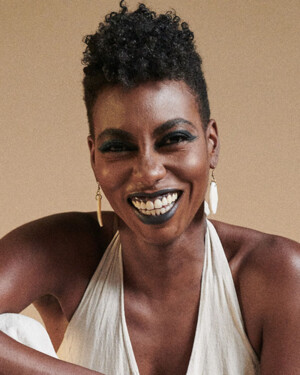
Making their Boston Lyric Opera debut, Rocio Mendez (Fight/Intimacy Director) is an award-winning actor, fight and intimacy director and a proud NewYorker committed to building confidence in brown and black girls through storytelling. Credits include Fire Shut Up In My Bones, Eurydice, Rigoletto, Rodelinda, Lucia (The Met Opera) POTUS (Broadway), Merry Wives, Romeo y Julieta (Public Theater), On Sugarland (NYTW), Black No More (The New Group), Vietgone, The Royale (Geva Theater Center), The Wolves (ATL), Secret Life of Bees(Atlantic Theater Company). Rocio is a team member of UNKLE DAVE’S FIGHT HOUSE – a collective of fight/intimacy/movement directors serving theater, film and educational institutions.

Sara Brown
Set Designer
Sara Brown | Set Designer

Sara Brown is a set designer for theater, opera, and dance. Selected designs include The Day at Jacob’s Pillow; Hagoromo at the Brooklyn Academy of Music; Fellow Travelers and La Rondine at the Minnesota Opera; World of Wires at The Kitchen in NYC and Festival d’Automne in Paris; Prince of Providence at Trinity Repertory company in Providence, RI; Der Freischütz with Heartbeat Opera in NYC; The Mother of Us All at the Metropolitan Museum of Art. Upcoming projects include Common Ground Revisited at the Huntington Theater and Letters That You Will Not Get produced by American Opera Projects as part of the On Women festival with Irondale Ensemble Project . She is an Assistant Professor at The Massachusetts Institute of Technology in Music and Theater Arts. You can her work at www.sarabdesign.com.

Trevor Bowen
Costume Designer
Trevor Bowen | Costume Designer
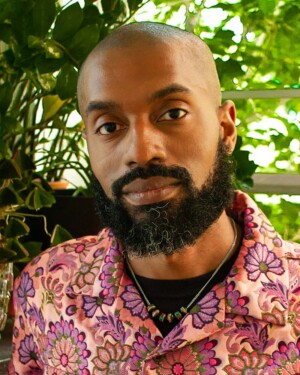
Trevor Bowen is a costume designer based in the Twin Cities and is a 2021-22 McKnight Theater Artist Fellow at the Playwrights’ Center, and a member of USA 829. In Minnesota, his designs have been featured at the Pillsbury Theater, Minnesota Opera, Gutherie Theater, Children’s Theater Company, Walker Art Center, and Mixed Blood Theater. Other projects include Fellow Travelers (Boston Lyric Opera): The Knock (Glimmerglass Festival); The Watsons Go to Birmingham-1963, Black Beauty, The Miraculous Journey of Edward Tulane (Seattle Children’s Theatre); BLKS, True West (Steppenwolf); Sweat (Asolo Rep); Ragtime (5th Ave); Ride the Cyclone (McCarter).
His upcoming engagements include Brothers Size at American Players Theatre and Holy Ground/Taking Up Serpents at Glimmerglass Festival. He graduated from West Virginia University with a Master of Fine Arts in Costume Design.

Marcus Doshi
Lighting Designer
Marcus Doshi | Lighting Designer
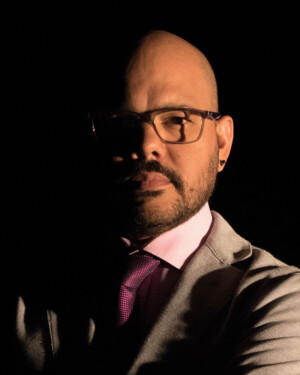
MARCUS DOSHI (Lighting Design)is an international award winning theatre maker who designs lighting and sets for theater, opera, and dance and collaborates with artists and architects on a wide array of non-performance-based work. His work has been seen extensively in New York. For Broadway credits include Linda Vista (2019) and Pass Over (2021). Work Off-Broadway includes a longstanding collaboration with Theatre for a New Audience. In Chicago (Steppenwolf, The Goodman, Lyric Opera, others), at most major regional theatres and opera companies in the USA, and internationally in 18 countries across five continents; notably La Traviata (Lyric Opera of Chicago, Canadian Opera Company, Minnesota Opera, Houston Grand Opera); Les Mamelles de Tirésias (Aldeburgh Music, Festival d’Aix-en-Provence; La Monnaie in Brussels, Dutch National Opera, Palau de les Arts Reina Sofia in Valencia); Giulio Cesare (Houston Grand Opera); Don Giovanni (Santa Fe Opera); and Elektra (Seattle Opera); as well Sydney Festival, National Arts Centre Mumbai, amongst many others. He is Associate Chair of Department of Theatre at Northwestern University, where he teaches design. marcusdoshi.com

J. Jared Janas
Wig-Makeup Designer
J. Jared Janas | Wig-Makeup Designer
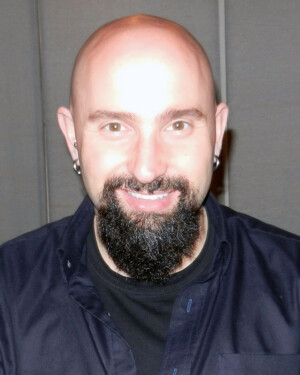
Opera: Written in Stone at Washington National Opera, Porgy and Bess and The Flying Dutchman at The Atlanta Opera, two seasons as Wigmaster at Glimmerglass Festival, and four seasons as Wigmaster at Bard Summerscape.
Broadway: How I Learned to Drive, Ameican Buffalo, Jagged Little Pill, Frankie and Johnny in the Claire de Lune, Gettin’ the Band Back Together, Bandstand, Indecent, Sunset Boulevard, The Visit, The Real Thing, Lady Day at Emerson’s Bar & Grill, Motown, Peter and the Starcatcher, The Gershwins’ Porgy and Bess, All about Me, Next to Normal.
Recent Off-Broadway & Regional: The Bluest Eye (Huntington), Ah, Wilderness! (Hartford Stage), Clue (Paper Mill Playhouse), Seven Deadly Sins (Tectonic Theater Project), Sing Street (NYTW), Scotland, PA (Roundabout), Wives (Playwrights Horizons), Toni Stone (Roundabout), BLKS (MCC), Nantucket Sleigh Ride (Lincoln Center), Alice by Heart (MCC), Miss You Like Hell, The Low Road, and Father Comes Home from the Wars… (Public Theater), Jerry Springer the Opera (New Group), Yours Unfaithfully (Mint Theatre, Drama Desk nomination).
Recent Film/TV: “And Just Like That,” “The Gilded Age,” “Madam Secretary,” “The Good Fight,” “Six by Sondheim,” “Gotham,” and “Mozart in the Jungle.”
Emerson Cutler Majestic Theatre
219 Tremont Street | Boston, MA | 02116
Directions & Parking
PUBLIC TRANSPORTATION
Green Line to Boylston station. Walk toward the intersection of Boylston and Tremont and cross Boylston Station before continuing downhill ½ block. The Cutler Majestic Theatre is on the right, look for the purple and gold banners and the electric marquee.
Orange Line to Chinatown station on Essex Street. Walk toward the front of the China Trade Center building, and continue with that building on your left. At the intersection of Boylston and Tremont, turn LEFT onto Tremont street. The Cutler Majestic Theatre is on the right, look for the purple and gold banners and the electric marquee.
Red Line to Park Street Station by the Boston Common. Exit the station and walk down Tremont Street, keeping the Boston Common on your right. When you come to the intersection of Boylston and Tremont, cross Boylston Street and continue downhill 1/2 block. The Cutler Majestic Theatre is on the right, look for the purple and gold banners and the electric marquee.
DRIVING DIRECTIONS
From the North:
-
- Take I-93 South to EXIT #23 (South Station onto Purchase Street).
-
- Continue along Purchase Street which becomes Surface Artery to Kneeland Street.
-
- Turn RIGHT onto Kneeland Street (after 2 blocks becomes Stuart Street).
-
- When Stuart Street dead-ends, turn RIGHT onto Charles Street.
-
- Turn RIGHT onto Boylston Street.
-
- Turn RIGHT onto Tremont Street.
-
- Arrive at 219 Tremont Street. The Cutler Majestic Theatre is on the right, look for the purple and gold banners and the electric marquee.
From the South:
-
- Take I-93 North to EXIT #20 (South Station)
-
- Get off exit ramp and BEAR LEFT immediately, following signs for South Station.
-
- Go through a couple sets of lights and STAY TO THE RIGHT at the split still following signs for South Station.
-
- Keep going until you come to a light.
-
- Turn LEFT onto Kneeland Street (after 2 blocks this becomes Stuart Street).
-
- When Stuart Street dead-ends, turn RIGHT onto Charles Street.
-
- Turn RIGHT onto Boylston Street.
-
- Turn RIGHT onto Tremont Street.
-
- Arrive at 219 Tremont Street. The Cutler Majestic Theatre is on the right, look for the purple and gold banners and the electric marquee.
From the Mass Pike:
-
- Take EXIT #22 (Copley Square).
-
- Turn LEFT at the first light, onto Dartmouth Street.
-
- Turn RIGHT at the second light, onto Boylston Street.
-
- Stay to the right of the divider.
-
- Turn RIGHT onto Tremont Street.
-
- Arrive at 219 Tremont Street. The Cutler Majestic Theatre is on the right, look for the purple and gold banners and the electric marquee.
PARKING
We recommend any of the following parking garages:
LAZ Parking
660 Washington Street, Boston, MA 02111
Between Beech and Essex Streets
617-350-3130
*Limited vouchers for discount parking to the LAZ Parking Garage are available at the box office before each performance
VPNE Parking Solutions
Millennium Place Garage
(at the Ritz Carlton Hotel)
47 Boylston Street, Boston, MA 02116
Between Tremont and Washington Streets
(Pedestrian entrance 6 Avery Street)
617-574-7252
200 Stuart Street Garage
200 Stuart Street, Boston, MA 02116
617-457-2625
CityPlace Garage
8 Park Plaza, Boston, MA 02116
Entrance is on Charles Street South
617-723-1488
Motor Mart Garage
201 Stuart Street, Boston, MA 02116
617-482-8380
SP+ Parking
99 Summer Street Garage
99 Summer Street, Boston, MA 02111
Entrance at 22 Kingston Street
617-938-9104
Lafayette Garage
(at the Hyatt Regency Boston)
1 Avenue de Lafayette, Boston, MA 02111
617-723-1488
SP+ Parking
Boston Common Garage
Zero Charles Street, Boston, MA 02116
617-954-2098
This information can also be found at https://cutlermajestic.org
SEATING
Seating is divided into three levels: Orchestra, Mezzanine, and Balcony.
The Mezzanine and Balcony are accessible by stairs in the main lobby; there is no elevator access to these levels.The Mezzanine overhangs the Orchestra after row K.
ACCESSIBILITY
There is no elevator access to the Mezzanine and Balcony.
Restrooms are located in the lower lobby and accessible by elevator.
There are 30+ stairs to reach the Mezzanine and 60+ stairs to reach the Balcony.
Listening devices are available at the box office windows in the lobby.
RESTROOMS
Restrooms for all patrons are on the balcony level and the lower lobby level.
COAT CHECK
There is no coat check available at the Cutler Majestic Theatre
COVID-19 Policy
Please view the Cutler Majestic’s Shared Code of Conduct page for the theater’s COVID-19 protocols. All patrons attending any production at the Cutler Majestic must be in compliance with the venue’s Shared Code of Conduct.
For press images, please visit
Champion: An Opera in Jazz Media Kit
PRESS
First-rate! Terence Blanchard keeps the score swinging throughout.”
– The Arts Fuse
I was excited when Boston called and said that they wanted to produce “Champion” years ago — and all of a sudden the pandemic hit, and then it kind of just threw things out of whack. But I’m glad to see that we’re back on track. And I’m excited because, you know, Boston is one of those towns that has a serious music history.
– Terence Blanchard (interview with WGBH)
“’It’s really a story about people, it’s a story about acceptance, and the things that society chooses to accept and the things that society chooses to condemn,’ says (Brian) Major. ‘There is a striking quote from Griffith himself that punctuates the show. I killed a man and the world forgives me; I love a man and the world wants to kill me.’”
– Bay State Banner
“Redemption is the key. Because the whole opera is based on [Griffith] having a flashback as an elderly man suffering from dementia. But once he gets to meet Benny Paret, Jr. at the end of the performance, who tells him the family doesn’t harbor any ill will toward [Griffith], he just loses it. To see that this man had been carrying the weight of this event throughout his life, you know, to be redeemed in such a way by a family member I know had to be something that was really special for him.”
–The Boston Globe
Season artwork created by Myung Hee Cho.


